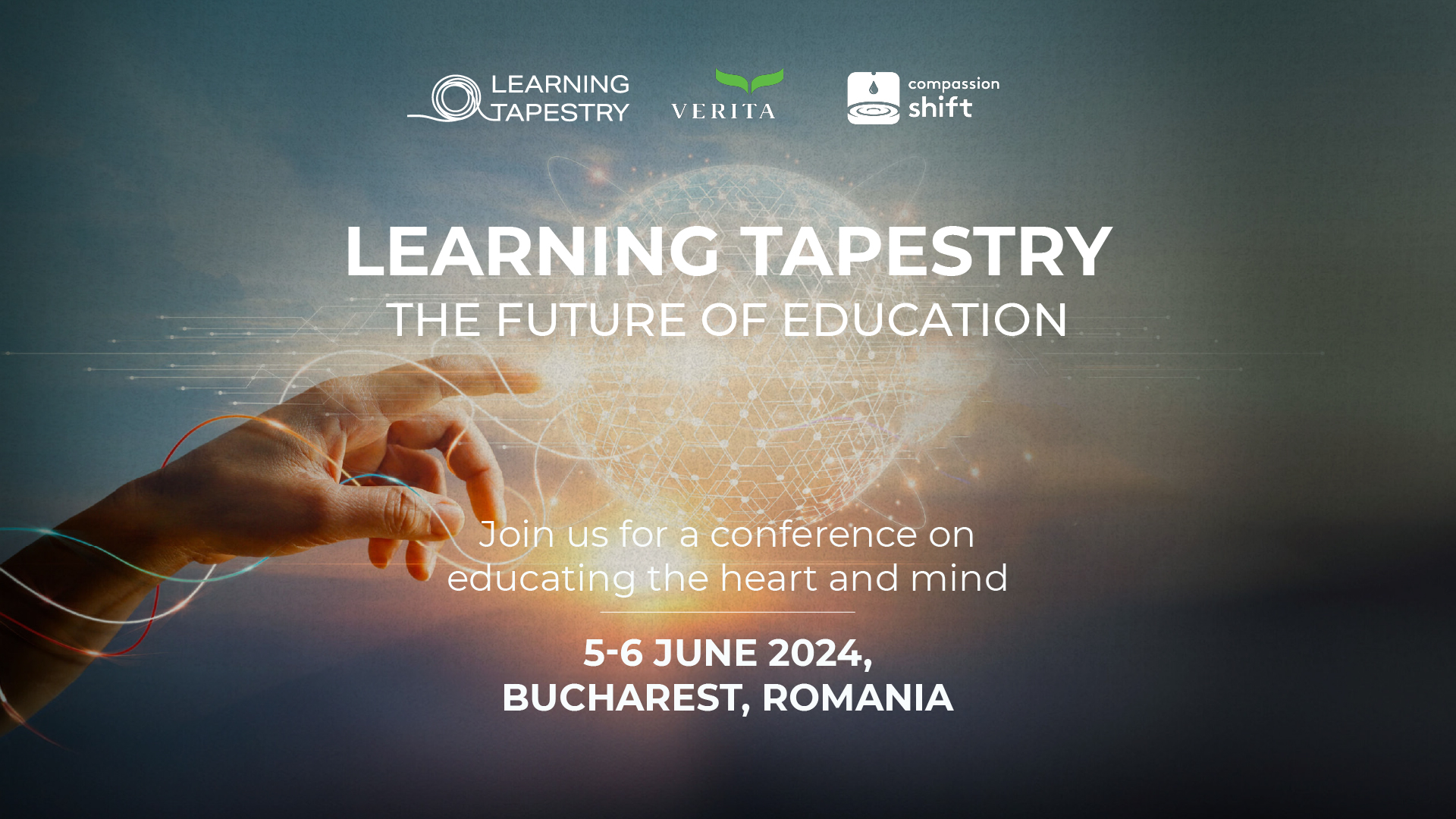Discover the Art of Teaching & Emotions - Interview with Ryder Delaloye, Associate Director for SEE Learning®



On June 5 and 6, he will come to Bucharest as a speaker at the "Learning Tapestry" conference which will take place at the FACE Convention Center and other locations. Details & tickets here.
From your professional experience, studies, and insights, what students need the most in order to feel happy and successful in life and career?
Students need to feel inspired and have a sense of purpose. Purpose can come in many forms but typically coincides with having a sense of agency and impact. The ability to navigate life’s challenges is agency and the feeling that you are making a difference is related to your perceived impact. Helping students to cultivate the tools and inner resources they need to have agency and impact is what is most important for the future generation concerning their personal lives and careers. Fostering positive relationships is the most important skill students need to feel happy and experience success in their lives and careers.
The development of the skills contained within SEE Learning such as awareness, self-compassion, impulse control, and empathy are highly correlated with lifetime success measures such as college attendance, home ownership, employment rates, or lifetime earnings.
What role does emotional intelligence play in the learning process?
Real learning is an emotional journey. Interest, excitement, and engagement not only feel good but also help us to learn and remember. The development of social, emotional, and ethical skills is critical for future success. If you think that is not true, ask yourself what you remember from high school, especially from the classes or teachers you found boring.
Research done by Nobel Prize-winning Economist James Heckman demonstrates that if we invest in the development of “soft skills” contained within SEE Learning® we will see significant returns on that investment in the form of social, economic, health, and educational outcomes. This overall benefit is not only good for individuals but for society as a whole.
Tell us one tip for parents, regarding social-emotional learning.
The most important tip for parents is to model the behaviors we want to see in our children. Modeling integrity, humility, forgiveness, and self-compassion creates space for growth and connection. It is hard for me to acknowledge my inadequacies and to be vulnerable but I have found that it creates the space needed for growth and connection. I know that if I am going to succeed in my role as a father and a husband, I need to prioritize my personal growth and development.
What is ethical learning and what is the importance of it for the future development of a child/adult?
Ethical learning is grounded in discernment and compassion. Compassion within SEE Learning® and CBCT® is defined as a warm-hearted concern that unfolds when we witness the suffering of others and feel motivated to relieve it. Discernment is the ability to understand connections between ourselves, others, and our actions. Engaging ethically requires an understanding of the context, contributing factors, and possible impacts or outcomes of our actions. Being able to step outside ourselves and view the situation and our possible responses is a key aspect of engaging with the situation in a way that is both effective and compassionate.
What inspired you to pursue a career in education and social-emotional learning, and how has your journey shaped your perspective on these topics?
My journey to personal and spiritual growth, influenced by SEE Learning® and CBCT®, has shaped me both personally and professionally. Through the Compassion Shift®, the Center for Contemplative Science and Compassion-based Ethics at Emory University is working to create a global movement of compassion. Not only do I see on a daily basis the impact SEE Learning and CBCT are having on my life I see it in the students and educators that are being shaped by the programs around the world. Sharing these tools and supporting a global movement of compassion is a privilege. SEE Learning® and CBCT® are making a significant impact worldwide, creating well-being and connection.
What impact do you hope to see your work have on education in the coming years, particularly in terms of promoting emotional intelligence and creating safer learning environments?
Education is the basis of societal change. Providing inner resources that promote competencies like kindness and emotional regulation will shape education. Addressing extreme behavioral issues in schools requires programs like SEE Learning® and CBCT® to support educators, students, and families.
Around the world SEE Learning and CBCT affiliates are taking steps to bring the Science of Compassion into schools. Whether through a weekly SEE Learning lesson or through staff development that involves CBCT practices schools and communities are being transformed in order to create cultures of compassion.

How do education and events like Learning Tapestry contribute to building a better educational system and better-prepared, emotionally balanced students?
The Learning Tapestry is an inspirational event that invites students, educators, and communities to begin the journey of creating compassion and well-being. Through the inspirational stories shared at the Learning Tapestry, we hope to inspire educators and community members to become leaders and begin their journey. Through the workshops provided at the conference participants will be able to develop their skills and gain in-depth knowledge about the process of transformation. Participants of The Learning Tapestry will join a select group of people around the world who are committed to real transformation and in creating a more compassionate world for all.
Tickets to the conference are available on the event’s website.
__
*This is Partner content.